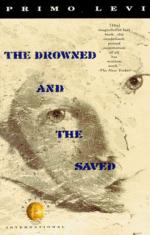
|
Preface
1. In what year did the tide of World War II change?
(a) 1939.
(b) 1942.
(c) 1944.
(d) 1940.
2. When people first heard of Nazi death camps, what was the reaction?
(a) Surprise.
(b) Incredulity.
(c) Anguish.
(d) Pride.
3. After the war, what was a major source of reconstructing what happened?
(a) The ruins of labor camps.
(b) The stories of survivors.
(c) The stories of liberating soldiers.
(d) The evidence of Nazi officials.
4. Why should survivors' stories be read critically?
(a) Each story is individual and lacks overall perspective.
(b) Each story tells the same information about the war.
(c) Survivors like to tell lies about their experiences.
(d) Survivors have a bad grasp of the German language.
5. Which subset of prisoners does Levi think make the best observers?
(a) Intellectuals.
(b) Kapos.
(c) Italian Jews.
(d) Political prisoners.
6. The Nazi party was elected to power in which country?
(a) Poland.
(b) Belgium.
(c) Germany.
(d) Italy.
7. Why does Levi feel the Germans suffered "willed ignorance" about the camps?
(a) They knew that liberation would be coming soon.
(b) The prisoners in the camps were all hardened criminals.
(c) Slave labor was an entrenched part of German society.
(d) They were happy to be getting supplies during war time.
(read all 180 Multiple Choice Questions and Answers)
|
This section contains 4,556 words (approx. 16 pages at 300 words per page) |

|




